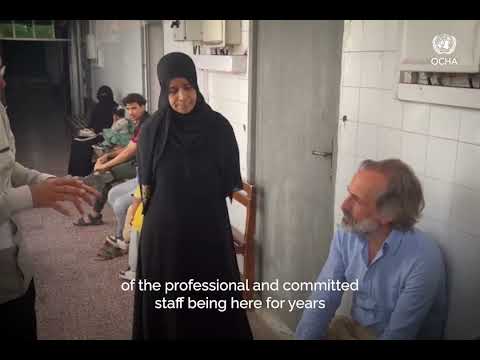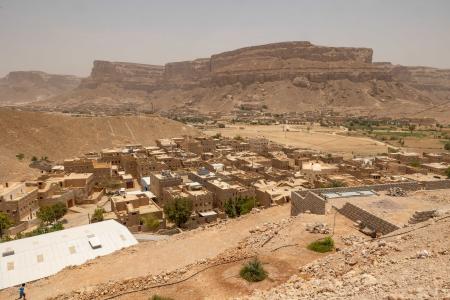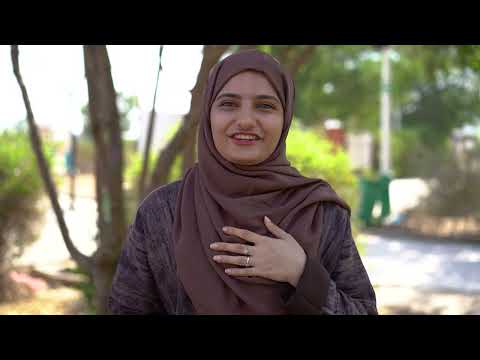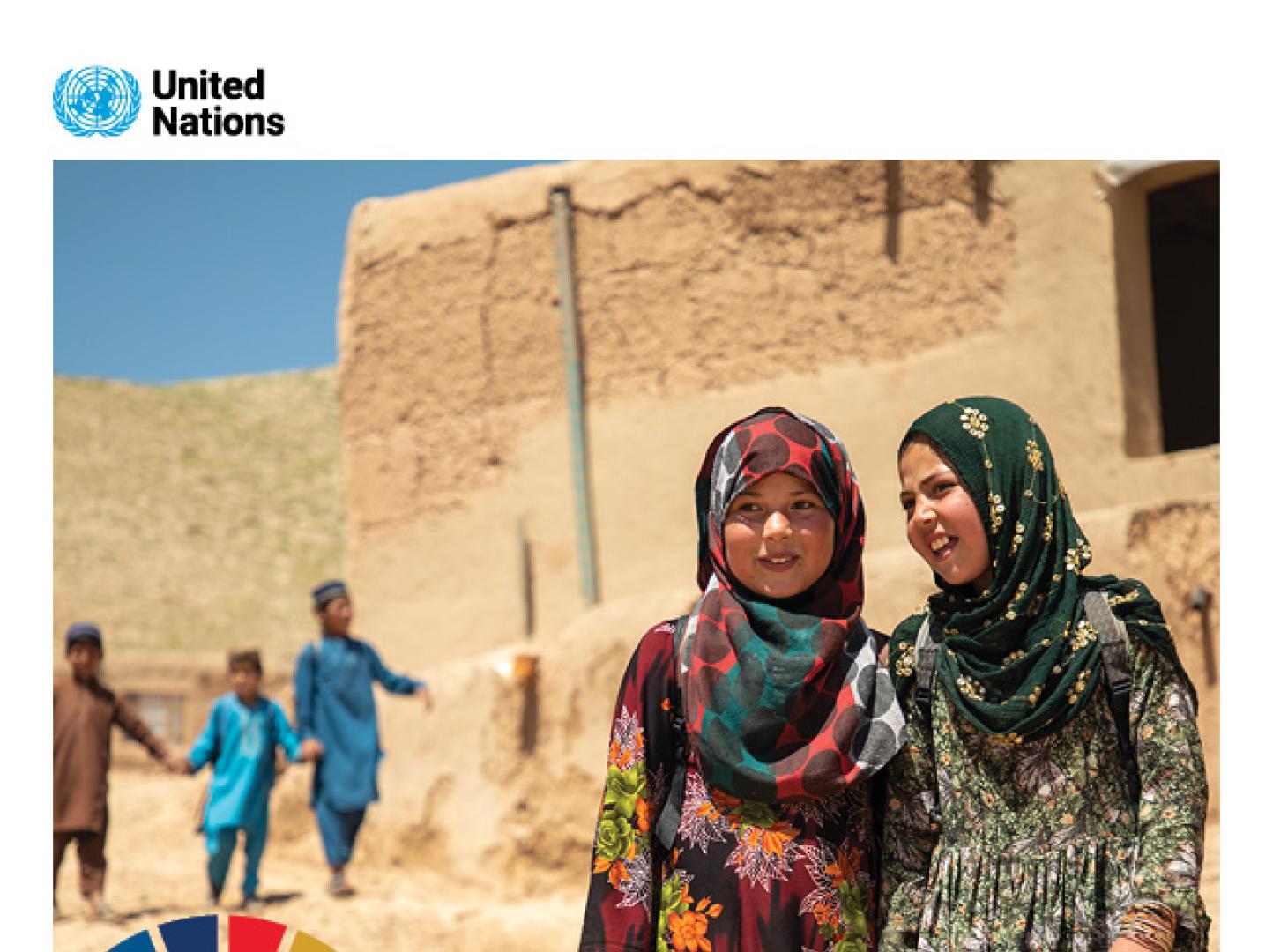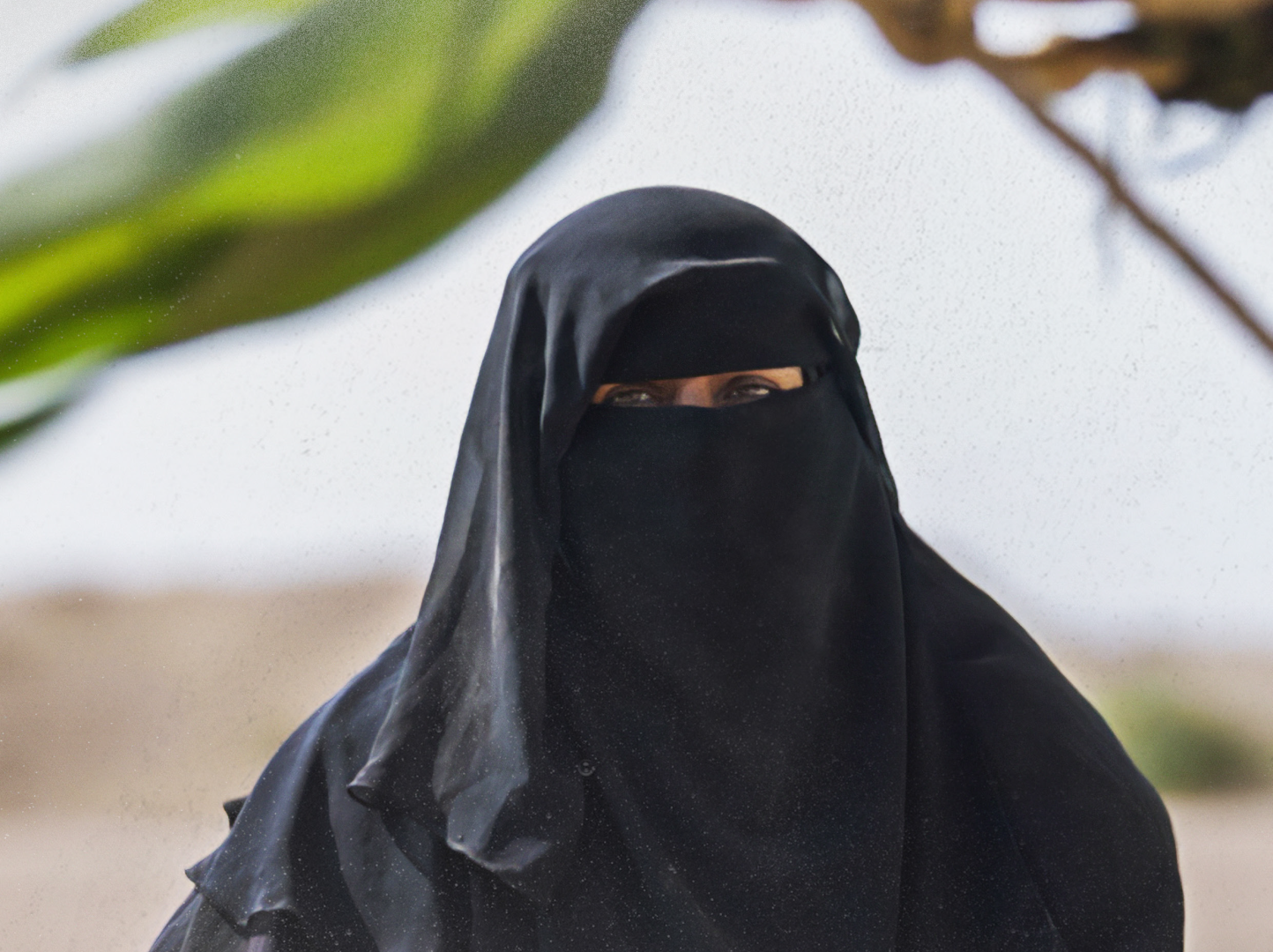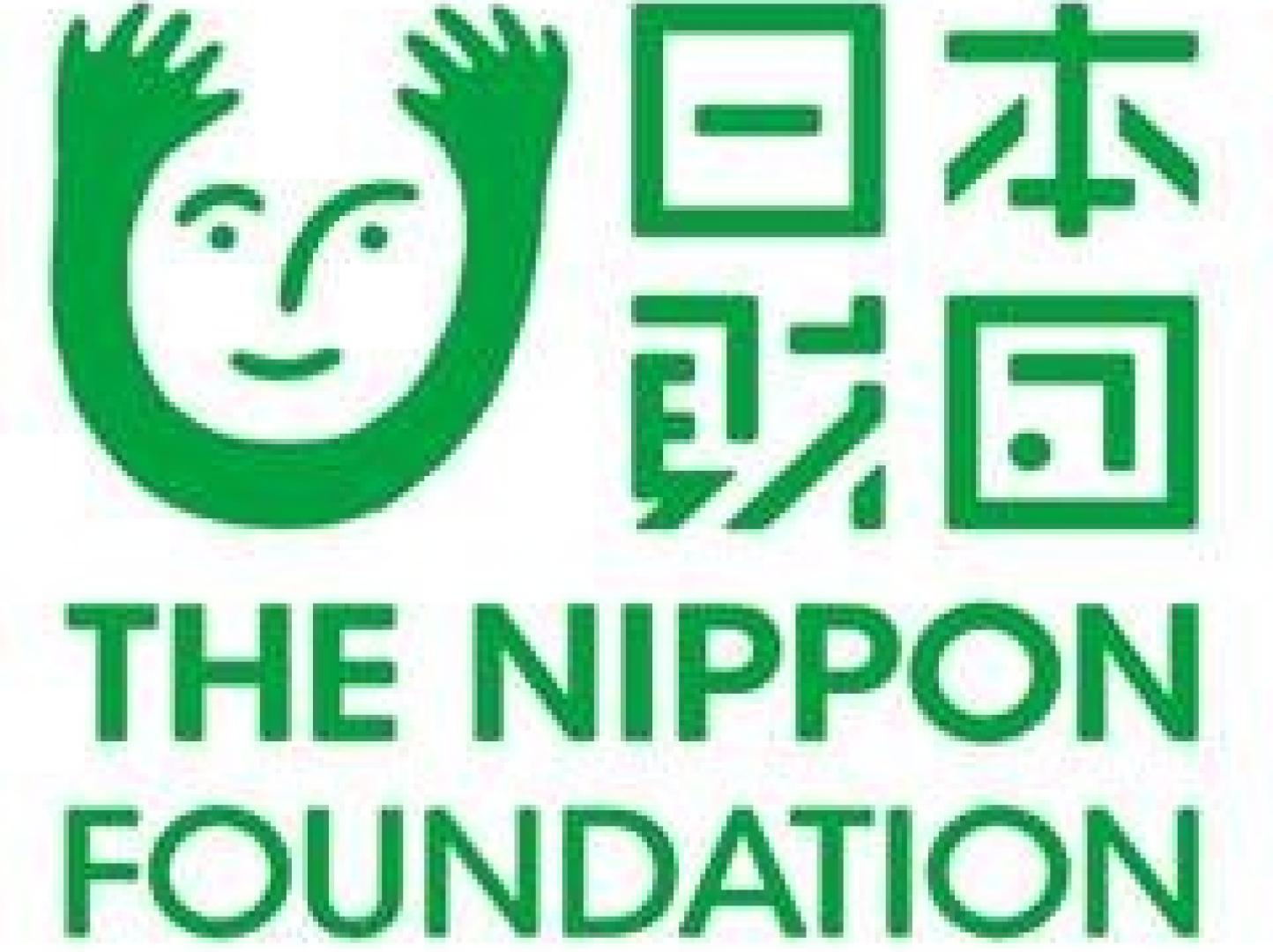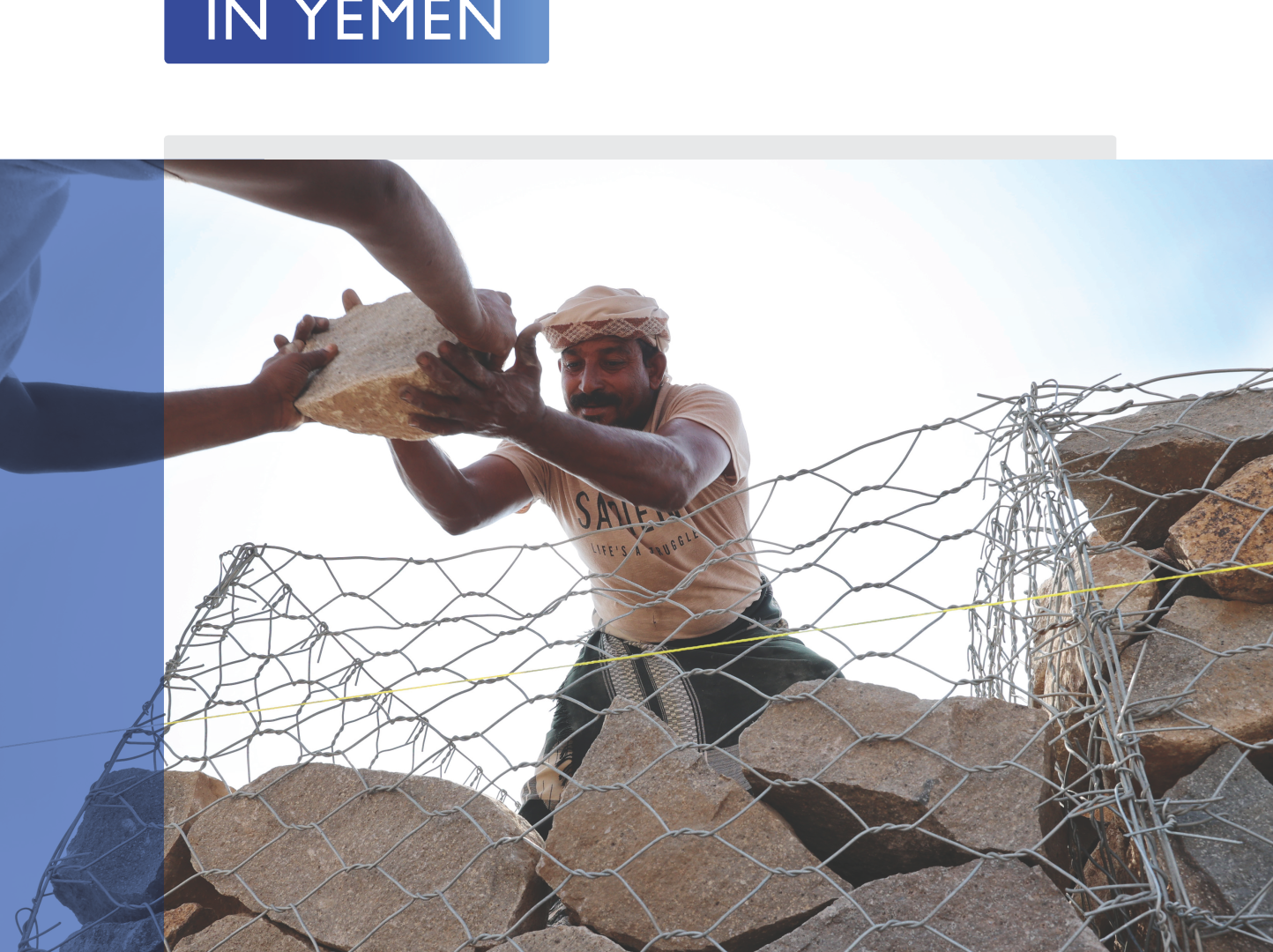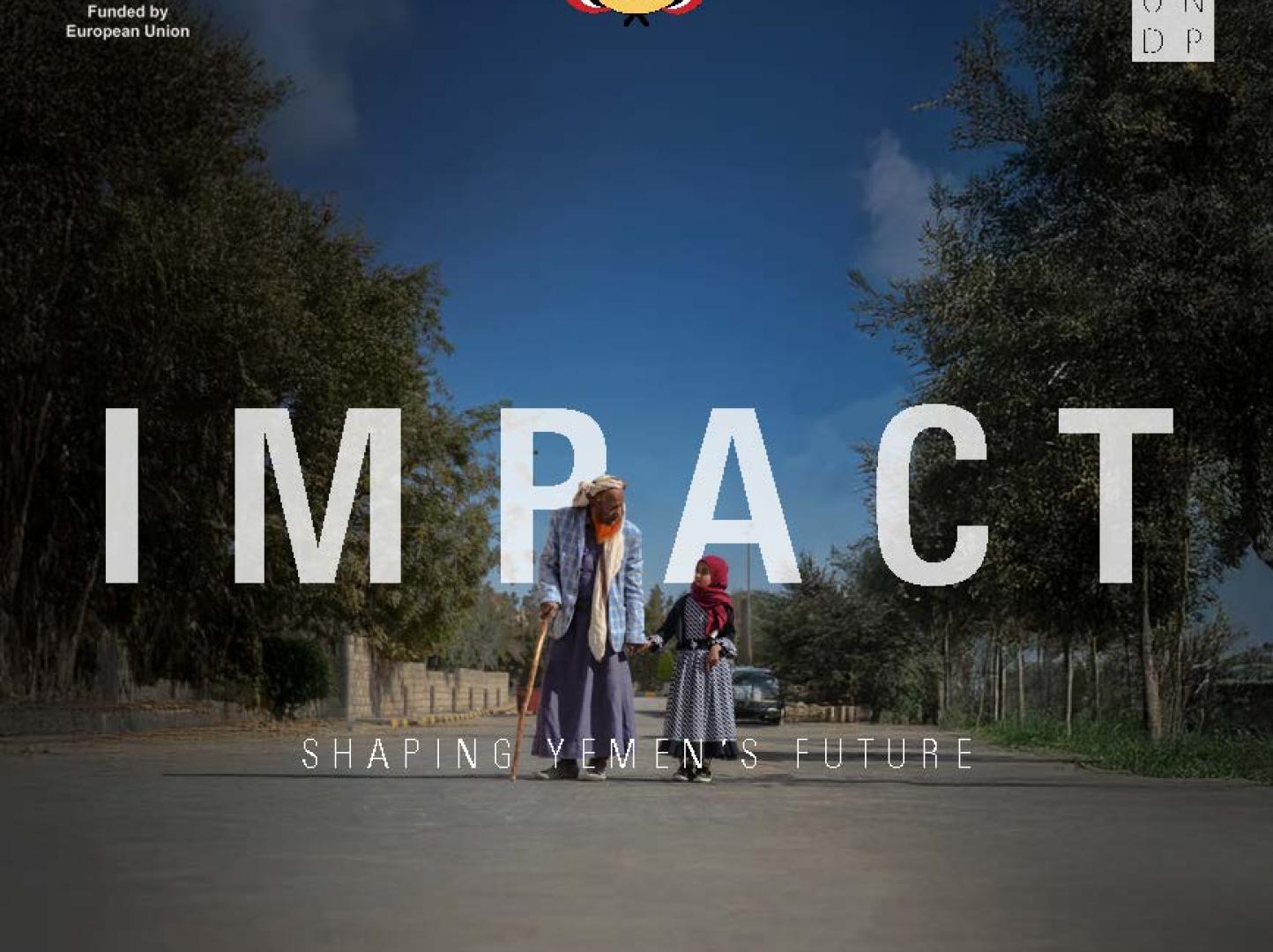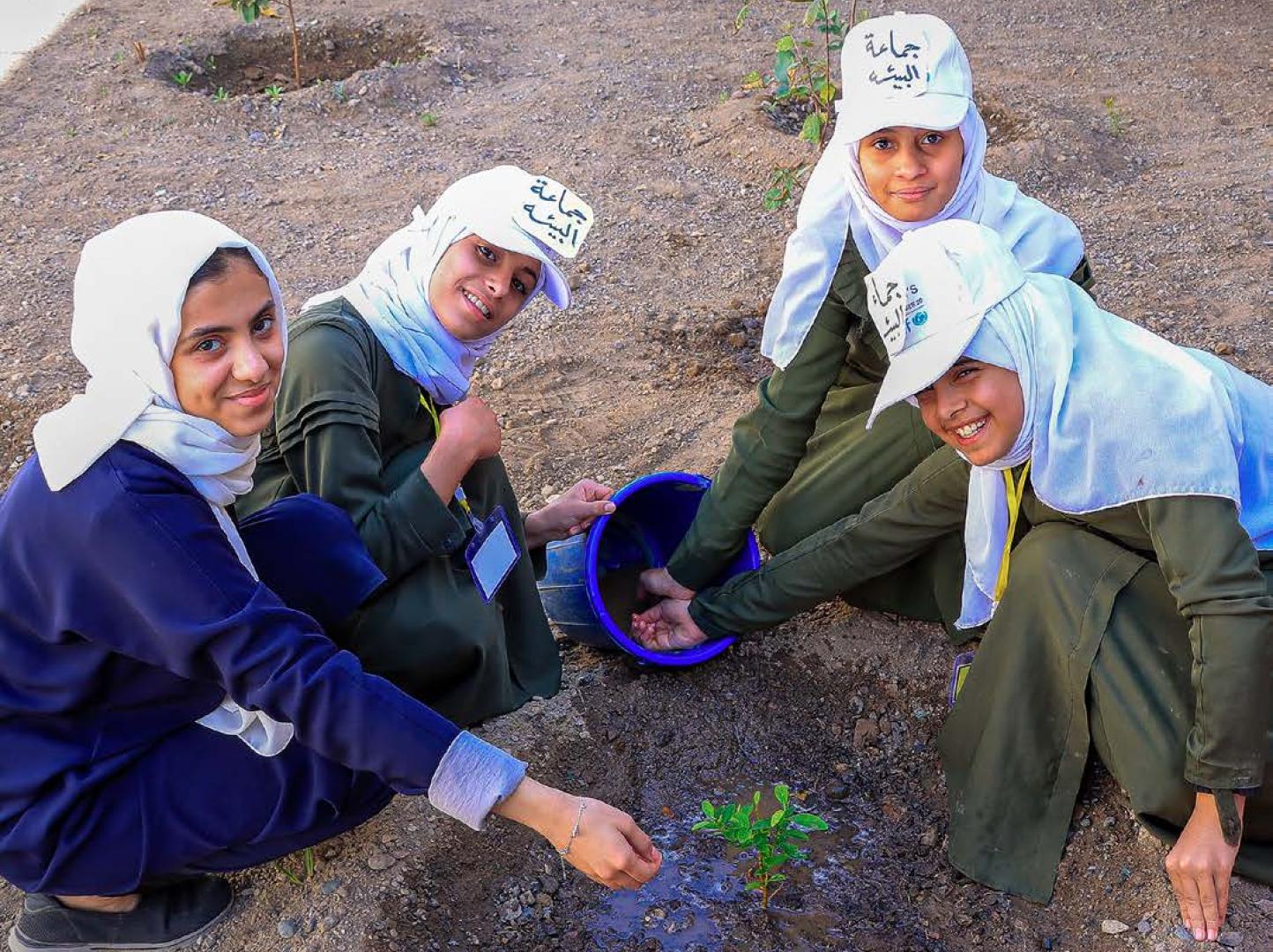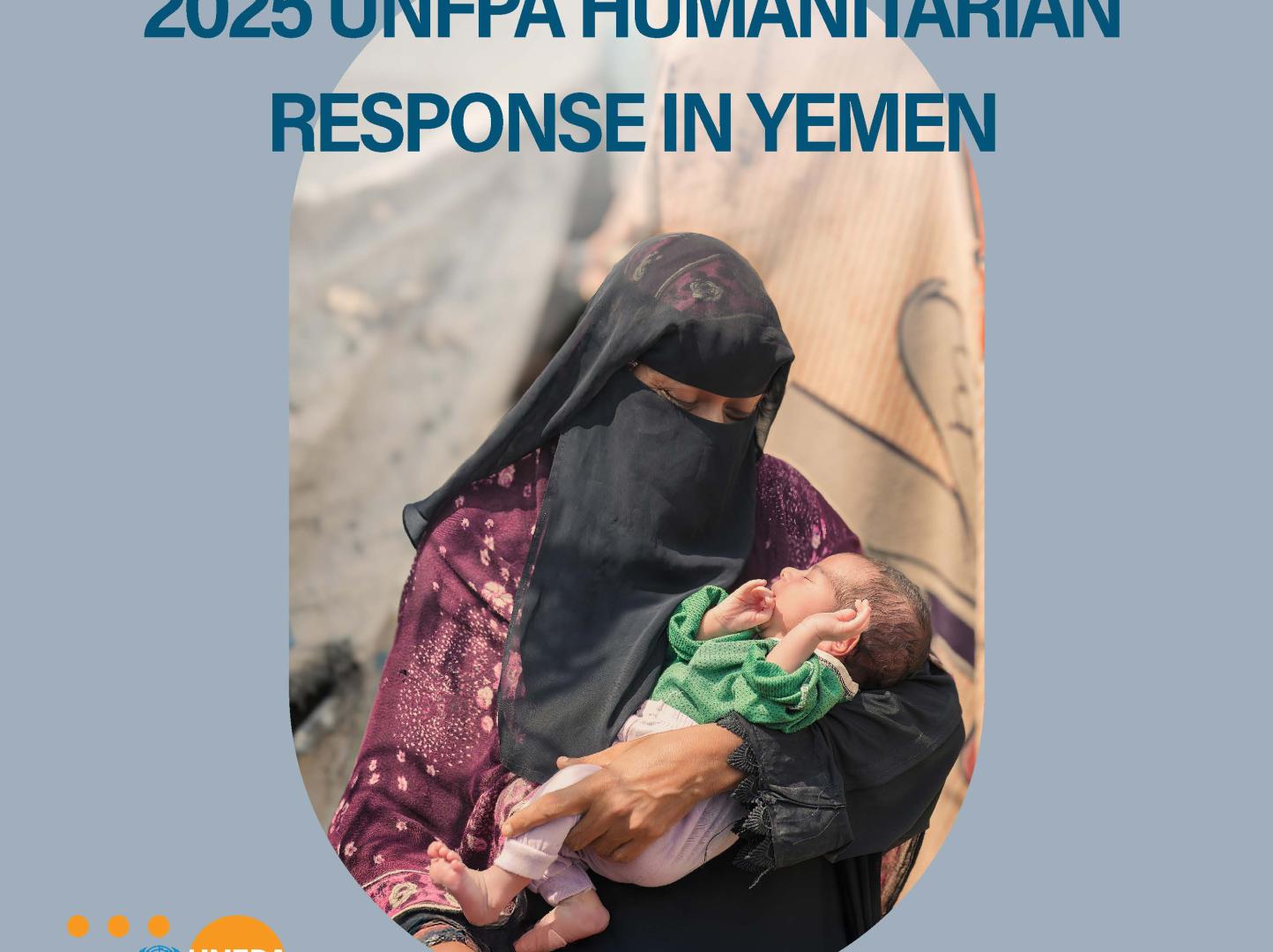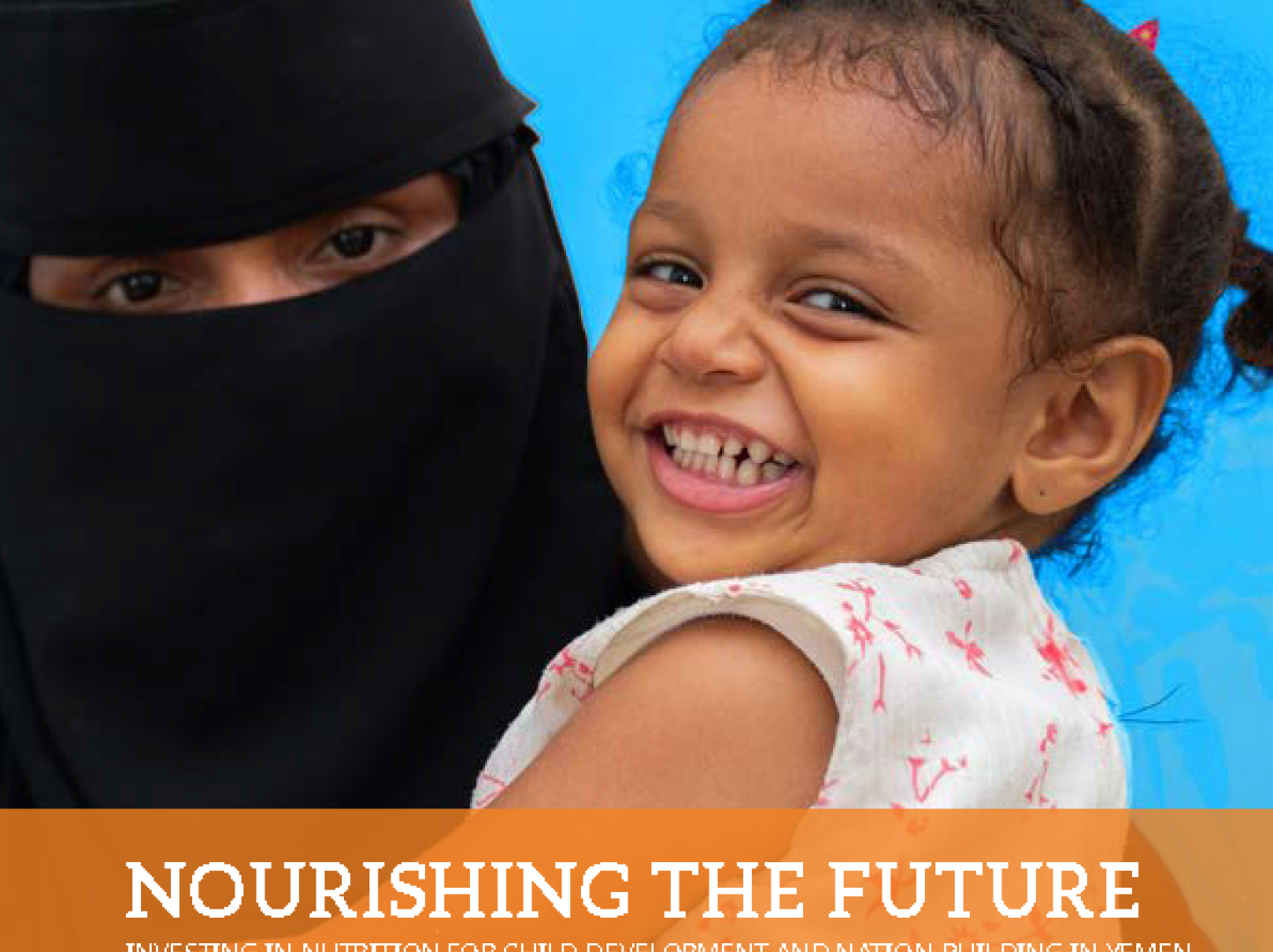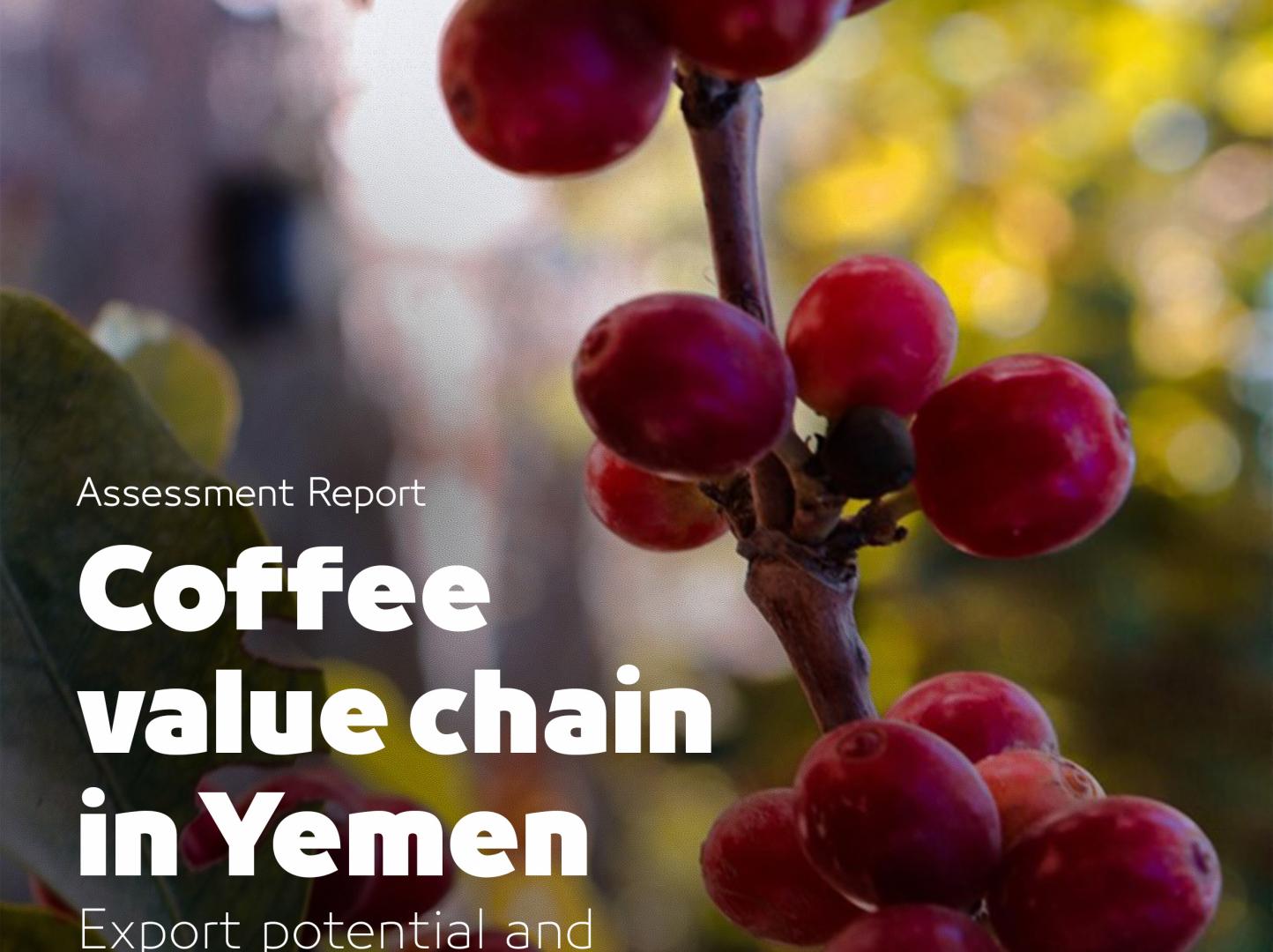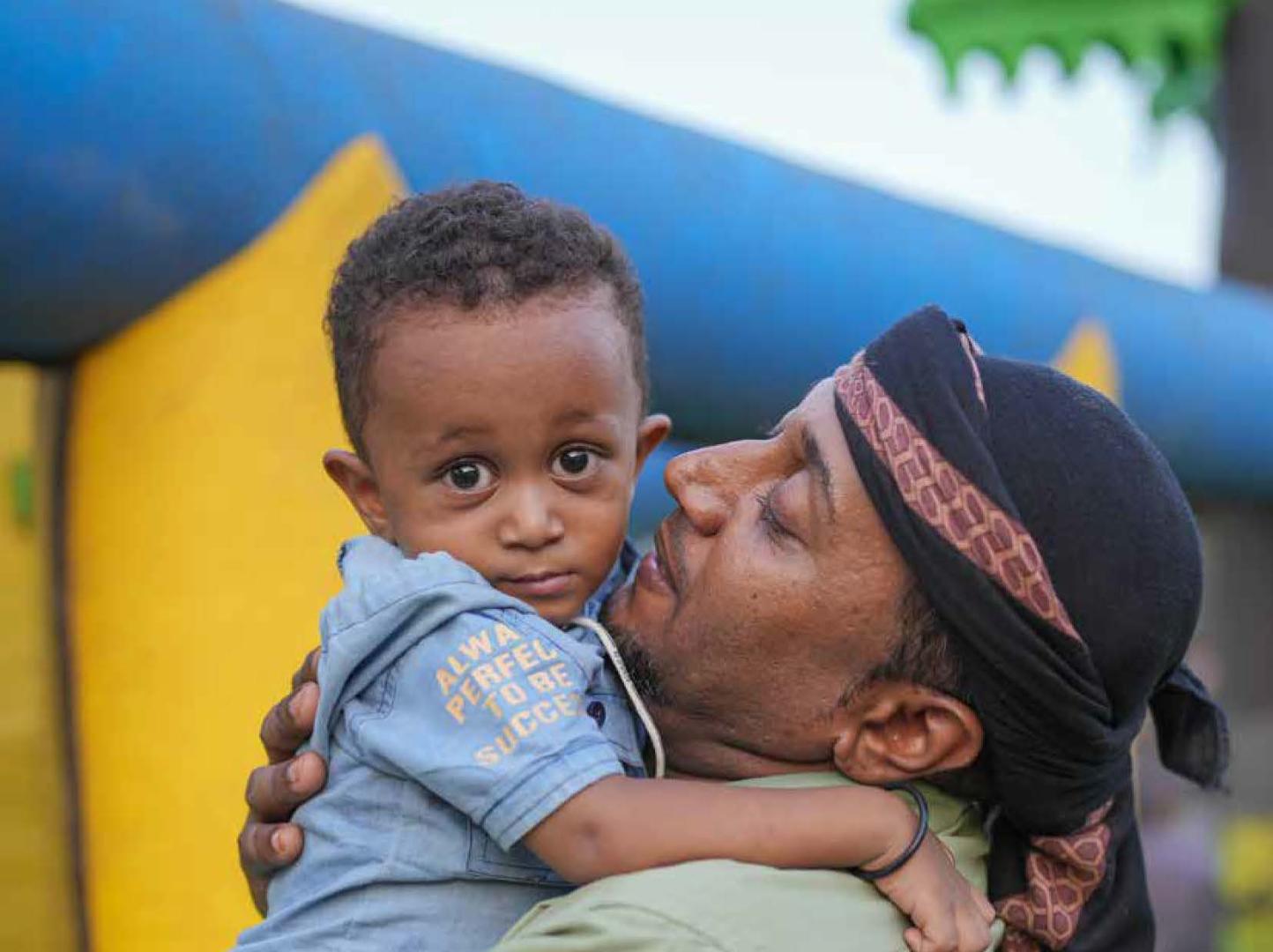Latest
Speech
31 December 2025
New Year Message by the United Nations Resident Coordinator and Humanitarian Coordinator for Yemen
Learn more
Speech
29 December 2025
THE SECRETARY-GENERAL --NEW YEAR’S VIDEO MESSAGE 2026
Learn more
Press Release
29 December 2025
UN in Yemen appreciates KSA Support in facilitating its humanitarian operations in Ma’rib
Learn more
Latest
The Sustainable Development Goals in Yemen
The Sustainable Development Goals are a global call to action to end poverty, protect the earth’s environment and climate, and ensure that people everywhere can enjoy peace and prosperity. These are the goals the UN is working on in Yemen:
Publication
28 April 2025
UN Yemen Country Results Report 2024
This report highlights the resilience of the Yemeni people and the collaborative impact of the United Nations Country Team and its partners in 2024. Despite immense challenges, significant strides were made in delivering essential development support, strengthening local capacities, and fostering pathways towards stability.Understand how the UN addressed critical needs in food security, healthcare, education, and livelihoods, while strengthening governance and promoting inclusive solutions. Discover the importance of strategic partnerships, innovative approaches, and the unwavering commitment to sustainable development goals in the Yemeni context.Download the full report to learn more about the UN's activities, achievements, and ongoing dedication to supporting Yemen's journey towards a peaceful and prosperous future.
1 of 5
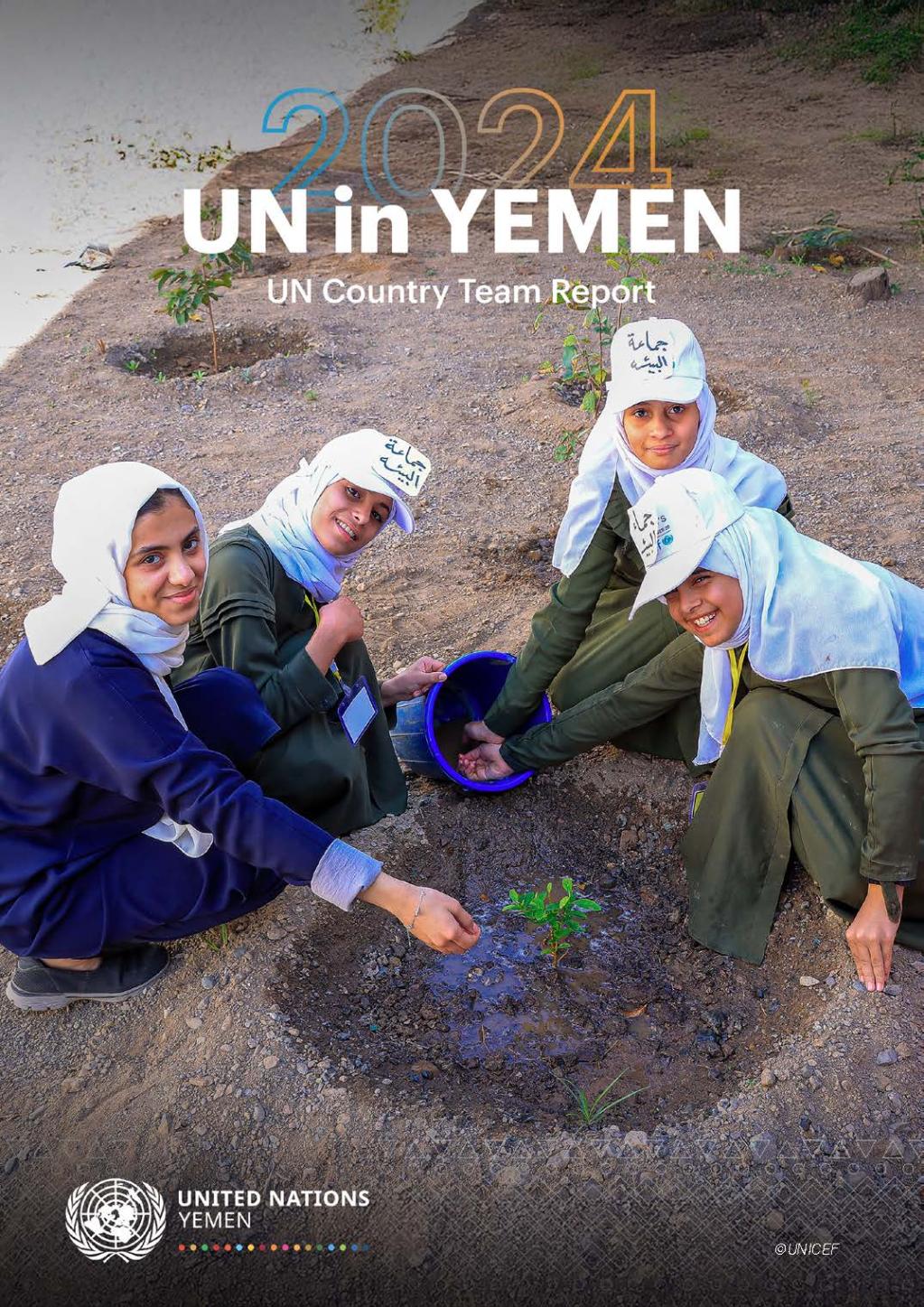
Press Release
05 September 2024
IOM Yemen: IOM Appeals for USD 13.3 Million to Help Hundreds of Thousands Affected by Yemen Floods
Yemen, 5 September – In response to the severe flooding and violent windstorms affecting nearly 562,000 people in Yemen, the International Organization for Migration (IOM) has launched a USD 13.3 million appeal to deliver urgent life-saving assistance. The unprecedented weather events have compounded the humanitarian crisis in the country, leaving thousands of internally displaced persons and host communities in dire need of assistance. “Yemen is facing yet another devastating chapter in its relentless crisis, exacerbated by the intersection of conflict and extreme weather events,” said Matt Huber, IOM Yemen’s Acting Chief of Mission. “IOM teams are on the ground, working around the clock to deliver immediate relief to families affected by this catastrophe. However, the scale of the destruction is staggering, and we urgently need additional funding to ensure that the most vulnerable are not left behind. We must act immediately to prevent further loss and alleviate the suffering of those impacted.” In recent months, torrential rains and flooding have destroyed homes, displaced thousands of families, and severely damaged critical infrastructure, including health centres, schools, and roads. Across multiple governorates, including Ibb, Sana’a, Ma’rib, Al Hodeidah, and Ta’iz, thousands of people have been left without shelter, clean water, or access to basic services, and scores of lives have been tragically lost. The storms have struck as the country grapples with a cholera outbreak and escalating food insecurity, further exacerbating the vulnerability of displaced families and strained health systems. As the harsh weather conditions are expected to continue, more households are at risk of displacement and exposure to disease outbreaks due to damaged water and health infrastructure. Ma’rib Governorate has been particularly hard-hit, with strong winds since 11 August severely damaging 73 displacement sites and affecting over 21,000 households. Public services, including electricity networks, have been severely affected, aggravating the crisis in one of Yemen’s most vulnerable regions. Urgent shelter repairs and cash assistance are needed, with healthcare services and sanitation infrastructure among the most immediate priorities. Since early August, floodwaters have damaged shelters, roads, water sources, and medical facilities, leaving over 15,000 families in Al Hodeidah and 11,000 in Ta’iz in desperate need of emergency support. These rains have not only led to tragic loss of life but have also wiped out entire communities’ belongings and means of survival. In response to this crisis, IOM is targeting 350,000 people with shelter, non-food items (NFI), cash-based interventions, health, camp coordination and camp management, and water, sanitation, and hygiene interventions. Distribution of water tanks, latrine repairs, and desludging efforts are ongoing in multiple sites, while health services are being expanded, with mobile teams currently treating over 100 individuals and referring critical cases to hospitals. IOM’s efforts are further supported by emergency response committees working tirelessly to register and verify affected households, relocate displaced families, and reduce the risks of further damage. However, the resources available are insufficient to cover the vast needs, with key gaps remaining, especially in the shelter and NFI sector. With no contingency stocks for essential relief items and the situation growing more critical by the day, immediate funding is necessary to address the most pressing needs on the ground. IOM stands ready to scale up its response but requires the necessary resources to do so. With further severe weather expected in the coming weeks and funding constraints, the Organization is urgently calling on the international community to support this appeal to continue providing lifesaving aid and address the overwhelming needs of those affected. To read the full appeal, please visit this page. For more information, please contact: In Yemen: Monica Chiriac, mchiriac@iom.int In Cairo: Joe Lowry, jlowry@iom.int In Geneva: Mohammedali Abunajela, mmabunajela@iom.int
1 of 5
Press Release
04 May 2023
Statement: Remarks at the pledging event for the FSO Safer operation co-hosted by the Netherlands and the United Kingdom
First, I want echo Achim’s thank you to the United Kingdom and the Netherlands for having organized this event.
And for contributing generously.
A third element that they both deserve credit for is recognizing early on the promise of a private-sector initiative to address the Safer which the Fahem Group and SMIT Salvage proposed in mid-2021 – a time when the previous UN plan to inspect the Safer was not moving.
The initiative called for a leading maritime salvage company to transfer the oil off the Safer and replace the decaying supertanker’s capacity.
That was the basis upon which the United Nations principals asked me to lead and coordinate UN system-wide efforts on the Safer, in September 2021.
In December 2021, United Nations senior management endorsed the UN-coordinated plan and asked UNDP to implement it, contingent upon donor funding.
In February 2021, I met with the Government of Yemen in Aden, which confirmed its support for the plan.
They have remained supportive ever since – as evidenced by a $5 million pledge that they made last year.
The Sana’a authorities had been favorable to the original initiative, but insisted that it be done under UN auspices.
In March 2022, they signed a memorandum of understanding with the UN that committed them to facilitating the operation.
A commitment that they continue to honor.
The agreement was also signed by myself with the Fahem Group, which has supported engagement in Sana’a on the initiative since 2021 on a voluntary basis.
By April 2022, the UN presented a draft operational plan to begin fundraising. The original budget for phase 1 and 2 was $144 million.
As Achim said, the Netherlands pledging event in The Hague last May brought in $33 million, which was a catalyst to move us to where we are today.
But finding funds to prevent a catastrophe proved far more difficult than finding money for a disaster.
In June, we launched a public crowdfunding campaign for the operation.
That has now brought in more than $250,000. More importantly, it captured media attention that galvanized further support for the plan.
In August, we received the first pledge from a private entity. $1.2 million from the HSA Group. The International Association of Oil and Gas Producers followed with a $10 million pledge and Trafigura Foundation with $1 million.
The private sector, we learned, was concerned about its liability linked to a contribution. UNDP, in particular, led the effort to resolve those issues of concern which gives us a basis for further private sector contributions.
By September last year, the UN met the target of $75 million to start the operation.
Unfortunately, even as UNDP was gearing up to begin, the cost of suitable replacement vessels surged, chiefly due to developments related to the war in Ukraine.
More money was also needed to start the initial phase because of the necessity to purchase a replacement vessel – also linked to the war in Ukraine as suitable vessels for lease were no longer available. The budget for the emergency phase – during which the oil will be transferred – is now $129 million. Most of the funding is now required up front in phase one. Now, the second phase only requires $19 million to complete the project.
So, the budget of $148 million is just $4 million more than was presented to donors a year ago.
Prior to today’s announcements, we had raised $99.6 million from member states, the private sector and the general public.
The general public has provided donations from $1 to $5,000.
The broad coalition working to prevent the catastrophe also includes environmental groups like Greenpeace and, in Yemen, Holm Akhdar.
Every part of the United Nations is involved, including the International Maritime Organization, the UN Environmental Progamme, and the World Food Progamme. The Office for the Coordination of Humanitarian Affairs is among those that have worked on the Safer file for years and has now ensured $20 million of bridging finance. That would need to be replenished by donor funding.
I also want to recognize the United States for playing a tireless role in mobilizing resources. It is among the top five donors, together with the Netherlands, Germany, the Kingdom of Saudi Arabia and the United Kingdom.
On 9 March, UNDP’s Administrator took the bold decision to purchase the replacement vessel Nautica – before all of the operation was in place.
That is because UNDP recognized the extraordinary problem and understood that the cost of inaction is too great, as Achim outlined.
UNDP also contracted the Boskalis subsidiary SMIT Salvage, which played an enormously helpful role in developing the UN plan long before it had a contract.
With both the Nautica and the SMIT vessel Ndeavor en route to Djibouti, we expect the operation to start before the end of the month.
Therefore, I thank all donors for the generous support, and we look forward to further generous support.
But the risk of disaster remains.
I am forever thankful to the heroic skeleton crew aboard the Safer that continues to do all it can to keep that vessel together until we can organize this salvage operation.
None of us will heave a sigh of relief until the oil is transferred.
And we will all heave a final sigh of relief when the critical second phase is completed. This requires that the project is fully funded as described.
As everyone has said we are just one step away so lets take the final step.
Thank you.
1 of 5
Publication
26 October 2022
UNITED NATIONS YEMEN SUSTAINABLE DEVELOPMENT COOPERATION FRAMEWORK 2022 – 2024
EXECUTIVE SUMMARY
UN global reform has elevated the United Nations Sustainable Development Cooperation Framework (UNSDCF) to be “the most important instrument for planning and implementing UN development activities” in the country. It outlines the UN development system’s contributions to reach the Sustainable Development Goals (SDGs) in an integrated way, with a commitment to leave no one behind, uphold human rights, Gender Equality and Women’s Empowerment (GEWE), and other international standards and obligations. The UNSDCF seeks to address the humanitarian, development and peace challenges in Yemen in an environment where key public institutions are fragmented, no national strategy exists, and where there has been no national budget since 2014. The Yemen UNSDCF outlines the UN’s collective priorities and development objectives to be reached jointly in the next three years 2022-2024 as part of an ongoing and longer- term vision for resilience building and forging of a pathway to peace.
Yemen is a country in conflict. The priorities of this UNSDCF are derived from the analysis of the impacts of this ongoing crisis on the people of Yemen, and the needs and opportunities as outlined in the UN’s Common Country Analysis (CCA) conducted in 2021.
The UN has prioritized four pillars that resonate with the SDG priorities of people, peace, planet and prosperity that aim, as a matter of urgency, to improve people’s lives in Yemen and build resilience that is equitable, inclusive, people-centred, gender responsive and human rights based, through outcomes that: 1. Increase food security, improving livelihood options, and job creation 2. Preserve inclusive, effective and efficient national and local development systems strengthening 3. Drive inclusive economic structural transformation 4. Build social services, social protection, and inclusion for all
The theory of change is driven by an expectation that by 2024 the impact for all people of all ages in Yemen affected by conflict, forced displacement and living in poverty in all its dimensions will experience change in the quality of their lives. This will be possible through increased food security and nutrition, livelihood options and job creation; preserved national and local development and systems strengthening; inclusive economic structural transformation and the building of social services, social protection and inclusion for all. Food security and nutrition, and sustainable and resilient livelihoods and environmental stability will be realized through effective food production and diversified food and nutrition security; and through sustainable climate sensitive environmental management. Rights-based good governance and inclusive gender sensitive improved public services and rule of law will be possible as a result of accountable, inclusive and transparent institutions and systems, as well as the building of trusted justice systems. Increased income security and decent work for women, youth and vulnerable populations will be realised through micro and macro-economic development and job creation. Strengthened social protection and basic social support service delivery focused on support to marginalized groups, and strengthening women and youth leadership in decision making processes will be supported through the preservation of social protection and expanded and effective social assistance and basic services.
The UNSDCF prioritises the population groups in Yemen that have the highest risk of being left behind due to the impact of conflict; economic, social, geographic or political exclusion; and marginalisation. Enacting the central transformative principle of the 2030 Agenda and the SDGs, whilst challenging in the Yemen context, does provide the lens through which the UNSDCF targets the most vulnerable and prioritise Leaving No One Behind.
On the basis that some groups in Yemen bear the brunt of the conflict due to forced displacement, livelihood disruption, food insecurity, limited social safety nets, increased levels of poverty and poor-
quality housing, the CCA 2021 identifies the following population groups at the greatest risk of being left behind:
- Women and girls - 73 percent of those displaced in Yemen are women and girls, especially women of reproductive age and adolescent girls
- Children – 60 percent of those killed directly by conflict are children under five
- Youth and adolescents – an estimated 2 million school-age girls and boys are out of school as poverty, conflict, and lack of opportunities disrupt their education
- Internally displaced persons – more than 4 million IDPs with 172,000 newly displaced in 2020 and almost 160,000 in 2021
- Refugees, asylum seekers and migrants – Yemen hosts approximately 138,000 migrants and 140,000 refugees and asylum seekers
- Persons with disabilities – 4.5 million Yemenis have at least one disability
- Ethnic and religious minorities – It is estimated that Muhamasheen represent 10 percent of the population living in marginalised conditions
The UNSDCF is comprised of four chapters. Chapter One: explores Yemen’s progress towards the 2030 Agenda through a detailed analysis of the country context drawing on the 2021 CCA. Chapter Two: presents the theory of change generally and per outcome area. Chapter Three: outlines the UNSDCF’s implementation plan focused on the management structure, resources, links to country programming instruments and Yemen’s Business Operations Strategy. Chapter Four: highlights the process for CCA updates, Monitoring and Evaluation and Learning. The Results Framework presents the outcomes and key performance indicators for monitoring agreed targets utilizing verifiable data sets. Two annexes capture the legal basis for all UN entities engaged in the UNSDCF and the mandatory commitments to Harmonised Approaches to Cash Transfers (HACT)1.
The UNSDCF represents the UN’s understanding that continued engagement in Yemen requires an operational architecture under-pinned by the Business Operations Strategy (BOS) and an integrated set of achievable programming priorities. These two strategic approaches of the UN system strengthen and make more inclusive the country’s national and local governance structures, and mainstream the required responses to the economic and health consequences of COVID-19. They tackle food insecurity and nutrition as a matter of priority and integrate the promotion and advancement of gender equality and women’s and girl’s empowerment.
UN global reform has elevated the United Nations Sustainable Development Cooperation Framework (UNSDCF) to be “the most important instrument for planning and implementing UN development activities” in the country. It outlines the UN development system’s contributions to reach the Sustainable Development Goals (SDGs) in an integrated way, with a commitment to leave no one behind, uphold human rights, Gender Equality and Women’s Empowerment (GEWE), and other international standards and obligations. The UNSDCF seeks to address the humanitarian, development and peace challenges in Yemen in an environment where key public institutions are fragmented, no national strategy exists, and where there has been no national budget since 2014. The Yemen UNSDCF outlines the UN’s collective priorities and development objectives to be reached jointly in the next three years 2022-2024 as part of an ongoing and longer- term vision for resilience building and forging of a pathway to peace.
Yemen is a country in conflict. The priorities of this UNSDCF are derived from the analysis of the impacts of this ongoing crisis on the people of Yemen, and the needs and opportunities as outlined in the UN’s Common Country Analysis (CCA) conducted in 2021.
The UN has prioritized four pillars that resonate with the SDG priorities of people, peace, planet and prosperity that aim, as a matter of urgency, to improve people’s lives in Yemen and build resilience that is equitable, inclusive, people-centred, gender responsive and human rights based, through outcomes that: 1. Increase food security, improving livelihood options, and job creation 2. Preserve inclusive, effective and efficient national and local development systems strengthening 3. Drive inclusive economic structural transformation 4. Build social services, social protection, and inclusion for all
The theory of change is driven by an expectation that by 2024 the impact for all people of all ages in Yemen affected by conflict, forced displacement and living in poverty in all its dimensions will experience change in the quality of their lives. This will be possible through increased food security and nutrition, livelihood options and job creation; preserved national and local development and systems strengthening; inclusive economic structural transformation and the building of social services, social protection and inclusion for all. Food security and nutrition, and sustainable and resilient livelihoods and environmental stability will be realized through effective food production and diversified food and nutrition security; and through sustainable climate sensitive environmental management. Rights-based good governance and inclusive gender sensitive improved public services and rule of law will be possible as a result of accountable, inclusive and transparent institutions and systems, as well as the building of trusted justice systems. Increased income security and decent work for women, youth and vulnerable populations will be realised through micro and macro-economic development and job creation. Strengthened social protection and basic social support service delivery focused on support to marginalized groups, and strengthening women and youth leadership in decision making processes will be supported through the preservation of social protection and expanded and effective social assistance and basic services.
The UNSDCF prioritises the population groups in Yemen that have the highest risk of being left behind due to the impact of conflict; economic, social, geographic or political exclusion; and marginalisation. Enacting the central transformative principle of the 2030 Agenda and the SDGs, whilst challenging in the Yemen context, does provide the lens through which the UNSDCF targets the most vulnerable and prioritise Leaving No One Behind.
On the basis that some groups in Yemen bear the brunt of the conflict due to forced displacement, livelihood disruption, food insecurity, limited social safety nets, increased levels of poverty and poor-
quality housing, the CCA 2021 identifies the following population groups at the greatest risk of being left behind:
- Women and girls - 73 percent of those displaced in Yemen are women and girls, especially women of reproductive age and adolescent girls
- Children – 60 percent of those killed directly by conflict are children under five
- Youth and adolescents – an estimated 2 million school-age girls and boys are out of school as poverty, conflict, and lack of opportunities disrupt their education
- Internally displaced persons – more than 4 million IDPs with 172,000 newly displaced in 2020 and almost 160,000 in 2021
- Refugees, asylum seekers and migrants – Yemen hosts approximately 138,000 migrants and 140,000 refugees and asylum seekers
- Persons with disabilities – 4.5 million Yemenis have at least one disability
- Ethnic and religious minorities – It is estimated that Muhamasheen represent 10 percent of the population living in marginalised conditions
The UNSDCF is comprised of four chapters. Chapter One: explores Yemen’s progress towards the 2030 Agenda through a detailed analysis of the country context drawing on the 2021 CCA. Chapter Two: presents the theory of change generally and per outcome area. Chapter Three: outlines the UNSDCF’s implementation plan focused on the management structure, resources, links to country programming instruments and Yemen’s Business Operations Strategy. Chapter Four: highlights the process for CCA updates, Monitoring and Evaluation and Learning. The Results Framework presents the outcomes and key performance indicators for monitoring agreed targets utilizing verifiable data sets. Two annexes capture the legal basis for all UN entities engaged in the UNSDCF and the mandatory commitments to Harmonised Approaches to Cash Transfers (HACT)1.
The UNSDCF represents the UN’s understanding that continued engagement in Yemen requires an operational architecture under-pinned by the Business Operations Strategy (BOS) and an integrated set of achievable programming priorities. These two strategic approaches of the UN system strengthen and make more inclusive the country’s national and local governance structures, and mainstream the required responses to the economic and health consequences of COVID-19. They tackle food insecurity and nutrition as a matter of priority and integrate the promotion and advancement of gender equality and women’s and girl’s empowerment.
1 of 5
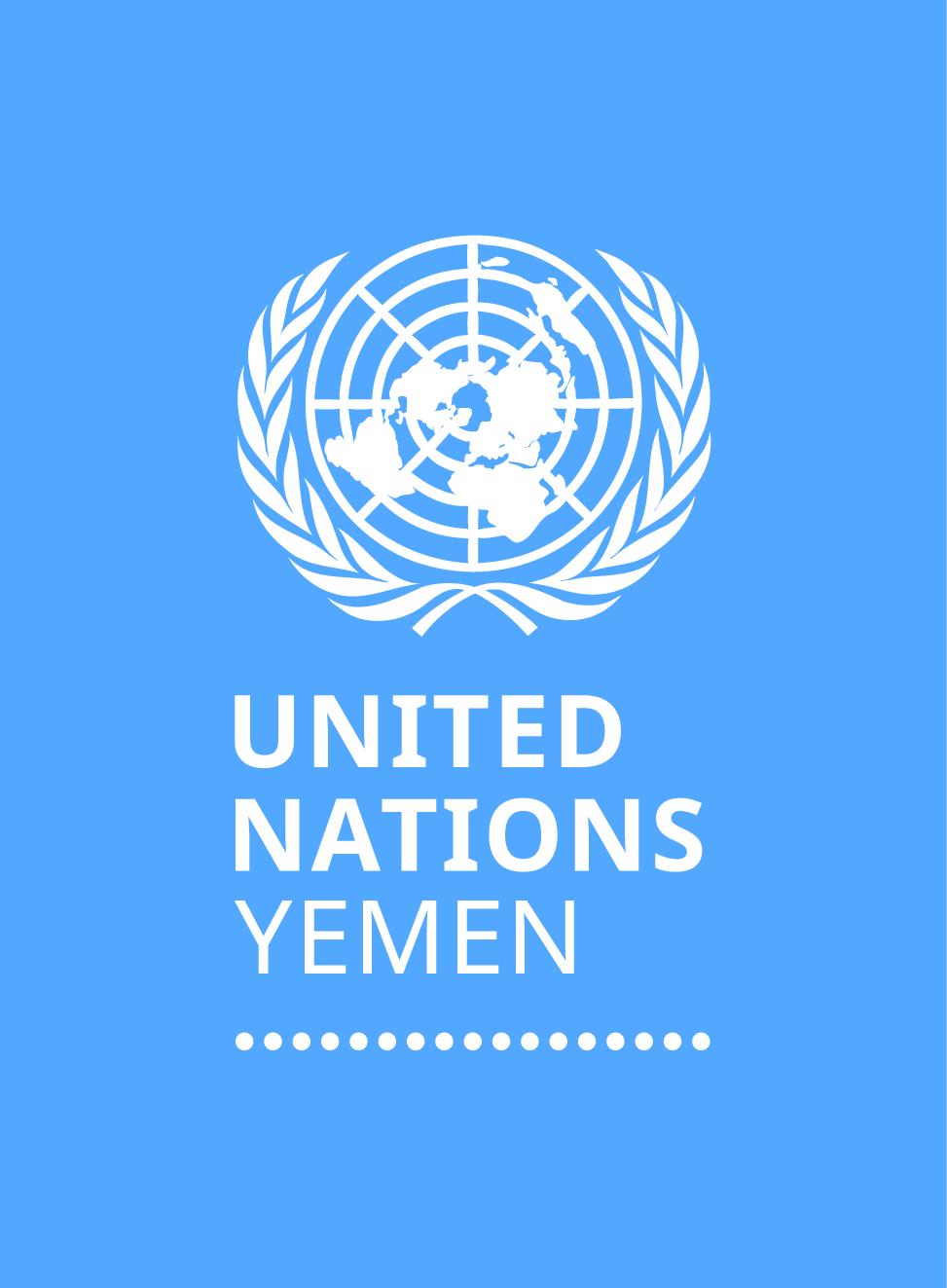
Press Release
15 August 2024
UNFPA/UNICEF Yemen: Life-saving aid critical as torrential rain sparks deadly floods across Yemen
Sana’a, 15 August 2024As relentless rain and catastrophic flooding in Yemen continue to exacerbate the suffering of families grappling with the impacts of poverty, hunger and protracted conflict, UNFPA, the United Nations Population Fund and UNICEF, the United Nations Children’s Fund, are delivering life-saving aid to some of the most vulnerable individuals through the Rapid Response Mechanism (RRM). With torrential rains forecast to continue into September, US$4.9 million is urgently needed to scale up the emergency response. Exceptionally heavy seasonal rains have caused flash floods in Yemen which are wreaking havoc in different parts of the country – the governorates of Al Hodeidah, Hajjah, Sa’ada, and Taizz are among the hardest-hit. Homes, shelters, and belongings have been swept away. Since early August, more than 180,000 people have been affected – over 50,000 people have been displaced in Al Hodeidah alone – a figure that is likely to rise in the coming days. Within 72 hours of the floods, over 80,000 people in flood-affected governorates had received emergency relief through the RRM, including ready to eat food rations, hygiene items, and women’s sanitary products. These items offer some immediate relief from the hardships caused by these catastrophic events. “The devastating floods have increased people’s needs, which are tremendous,” said Enshrah Ahmed, UNFPA Representative to Yemen. “Our RRM teams are working round the clock to provide immediate relief to affected families, but with rising needs and severe weather conditions forecasted, the coming weeks and months will be critical to ensuring affected families can pick themselves up and, at the very least, recover their lives.” In 2024, an estimated 82 percent of people supported through the RRM have been severely affected or displaced by climate-related shocks. As a result of the unseasonal levels of rain, the RRM cluster has had to spring into action, overstretching RRM teams, and depleting available supplies and resources. As needs continue to rise, RRM teams are struggling to reach affected families due to damaged roads, the erosion of landmines and unexploded ordnance from frontline to civilian areas. Items included in the RRM package are also in short supply. “The situation in the flooded areas is devastating. UNICEF and partners are on the ground providing urgently needed support to those impacted. The role of the Rapid Response Teams is critical in times of distress such as this one,” said Peter Hawkins, UNICEF Representative to Yemen.The RRM in Yemen was established in 2018 to provide a minimum package of immediate, critical life-saving assistance during human-made or natural disasters to newly displaced persons, and people in displacement sites or hard-to-reach areas, until the first line cluster response kicks in. The RRM ensures the distribution of immediate, ready-to-eat rations, basic hygiene kits provided by UNICEF, and women’s sanitary items provided by UNFPA, within 72 hours of a displacement alert. *** For more information, please contact UNFPA Taha Yaseen: Tel. +967 712 224090; yaseen@unfpa.org Lankani Sikurajapathy: Tel. +94773411614; sikurajapathy@unfpa.org UNICEF Kamal Al-Wazizah: Tel. +967 712 223 06; kalwazizah@unicef.org
1 of 5
Story
21 December 2025
IOM Yemen: “I Thought I Would Never See My Family Again”: Adam’s Journey from Exploitation to Safety
By:Mohammed Al-Ashwal | Media and communication unitAyoub Al-Ahmadi | Senior Translation AssistantAden, Yemen When Adam left his quiet farming village in Ethiopia, he carried only one hope — to find work and help his family. Instead, the 27-year-old was pulled into a cycle of violence, extortion, and forced labour that lasted nearly two years. Adam grew up in a small farming community in Ethiopia, surrounded by his family and the land that supported them. Life was modest but stable, and he spent most of his days helping with crops and caring for cattle. When a smuggler approached him with promises of better income abroad, Adam felt pressured to take the risk. He hoped that leaving home would allow him to support the people who depended on him. The idea of earning enough to lift his family out of hardship began to feel like an obligation he could not ignore. Believing he was choosing a path toward a better future, Adam joined a group of young men attempting to cross through Djibouti on their way toward the Arabian Peninsula. But the journey shifted quickly from hope to fear. While resting near the Djibouti border, the group was surrounded by armed forces. They were beaten, detained, and held for nine days in harsh conditions before being forcibly returned to Ethiopia. The experience left Adam shaken, but the pressure to support his family had become overwhelming. Returning home with nothing felt like failure, so despite the trauma, he decided to try again almost immediately. On his second attempt, he managed to reach Yemen, but the danger intensified. Shortly after arrival, Adam was taken by traffickers and moved into a crowded enclosure filled with other migrants who were equally frightened and uncertain of their fate. The traffickers demanded a ransom of 500,000 Ethiopian Birr for his release—an impossible amount for his family. Back home, the news devastated them. With no other options, they sold their land, their cattle, and every asset they owned to gather the money. “When I heard that my family had to give up everything to save me, I felt a deep pain,” Adam said. “I carried their sacrifice with me every day.” Even after the ransom was paid, Adam’s suffering continued. He was abandoned and left to find his own way through unfamiliar areas. He eventually reached Rada’a, where he found work on local farms. For seven months he laboured intensively, hoping to earn enough money to move forward or return home. But he was repeatedly denied his wages, leaving him trapped in a cycle of exploitation. Every attempt to escape his situation only pushed him deeper into uncertainty. Desperate to continue toward Saudi Arabia, Adam attempted the crossing again, but he was captured by military forces near the border. He endured another round of beatings, followed by three days of detention. After that, he was left in the desert without food or water. Weakened and exhausted, he struggled to survive until he was able to return once more to the Rada’a area. There, he continued working under the same harsh conditions, still unpaid and uncertain of when the nightmare would end. Nearly two years passed in this cycle of detention, forced labour, and constant fear. Adam survived on minimal food, little rest, and no sense of safety. His only goal became finding a way to return home. When he heard from other migrants about the assistance available at the International Organization for Migration (IOM) Migrant Response Point in Aden, he decided to take the risk and seek help. Reaching the centre marked the first moment of security he had experienced since leaving Ethiopia. “It was the first time I felt like someone cared about what happened to me,” he said. “IOM listened to me and helped me find a way out.” Adam has now returned home safely to Ethiopia through the Voluntary Humanitarian Return programme — supported by the Government of Norway. His arrival brought overwhelming relief to his family, who had spent years fearing for his life and carrying the weight of the sacrifices they made for his freedom. Seeing him step through the doorway marked the end of their long uncertainty and the beginning of a new chapter. Being back home has given Adam a sense of peace he thought he would never experience again. He spends his days reconnecting with his family, helping with small tasks around the house, and slowly adjusting to life after years of exploitation and hardship. Although the family lost their land and livestock to save him, they are grateful simply to have him back alive. The emotional healing will take time, but the feeling of being together again has given them strength. Adam is now focused on rebuilding his life and supporting his family in any way he can. He hopes to find stable work and eventually restore some of what was lost. For him, returning home is not just the end of a difficult journey — it is a chance to start again, surrounded by the people who never gave up on him. Adam’s safe return home was made possible through IOM’s VHR programme, with generous support from the Government of Norway.
1 of 5

Story
11 December 2025
UNFPA Yemen: Despite many closures, UNFPA safe spaces continue to provide support to survivors of gender-based violence in Yemen
HADRAMAWT GOVERNORATE, Yemen “One night I was a girl with a home, school and dreams,” said Lutfia*, now 20. “The next morning I became a displaced child who carried responsibilities and fears that were far bigger than her age.”Lutfia and her family fled their home town of Ta’iz, in the highlands of southwest Yemen, as conflict surrounded them. Her parents moved to the coastal city of Al-Shihr, in Hadramawt Governorate, but it was a life of hardship.“Many times I left school and returned again depending on whether my parents could afford the costs,” she told UNFPA, the United Nations sexual and reproductive health agency. After more than a decade of conflict and instability in Yemen, over 18 million people face severe hunger, and more than 6 million women and adolescent girls are at high risk of domestic violence, exploitation and child marriage – vulnerabilities that grow in crisis settings. Lutfia knows this all too well. In her new environment, she was repeatedly harassed by a group of local boys. Her family felt unable to defend her, as they were displaced, impoverished and faced discrimination in the area.One day, as she went to buy some groceries near her home, Lutfia was abducted. Four young men took her to an isolated location and held her captive for a week until authorities found her.“They abused me and left me destroyed, both physically and mentally,” said Lutfia. “When I returned home I was not the same person. I couldn’t speak. I couldn’t sleep. I used to wake up in the middle of the night crying.”As she fell into psychological distress, Lutfia’s family tried everything they could – sending her to hospitals and private clinics – but her condition spiralled. Eventually, she tried the only option she could think of to end her pain. “They abused me and left me destroyed, both physically and mentally” – Lutfia From trauma to entrepreneurshipSocial worker Amira* was called to visit Lutfia, and learned to her horror that she had tried to hang herself. Lutfia was swiftly transferred to a UNFPA safe space, where she received psychological and medical care and was monitored by a female psychiatrist. Her condition was fragile, but she said, “I felt something I had not felt in a long time – safety.”“They treated me as a person, not as a burden or a mistake. Slowly, I learned how to breathe again during panic attacks and how to return to the present when past memories tried to pull me away.”The safe space also offered vocational training, and Lutfia joined a design and sewing workshop, later selling the clothes she made at a local market. “At the beginning I was shy and anxious, but every small sale gave me more confidence,” she told UNFPA. “I felt something I had not felt in a long time – safety” – Lutfia* At the market she met a young man who would become her husband and business partner. “He didn’t look at me as a broken person, but saw me as someone strong who had survived. Over time we developed a relationship and I chose to marry him when I felt ready.”Together they opened a shop selling the dresses she made. “I want to give hope to others,” she said. “What saved me was many things working together: safety, therapy, being believed, having a skill and having people who supported me instead of judging me.”Lutfia is one of hundreds of women and girls to have attended the safe space, which was established in late 2019. But these services are at risk as the reality of funding shortages sets in, which could lead to devastating consequences.Empowerment key to recoveryFor many survivors of violence, earning their own living can be instrumental in their recovery. At a UNFPA safe space in Ibb Governorate women and girls can take lessons in beekeeping – from types of honey to the appropriate medications and feeding, right up to project management, marketing and selling their wares. Afterwards, the women receive a full set of equipment to launch and manage their own businesses independently.“My husband abused me in every possible way” – Sameera* One of these women is Sameera*, now 35, who had been forcibly married at 16 years old. “My husband abused me in every possible way,” she told UNFPA. “He controlled my money, my movements, until one day he threw me out, leaving me with nothing.” Sameera added, “I had no skills, no income and no sense of self worth. I called my mother and she travelled almost 150 km just to bring me home.” She was referred to the safe space in Ibb and admitted for specialized care. Then she heard about the beekeeping programme. “At first I was confused – I thought bees were dangerous, not a way to live. But I learned about how to care for hives, how to process honey and how to sell it.”Sameera fought through her nerves to thrive in her new profession. “I opened my first hive with shaking hands. Every time I made progress I felt like I was reclaiming a little piece of myself. The first time I sold honey in the market I cried when I left the stall. Not because of money, but because someone valued something I made.”She now works with other survivors, explaining, “The project changed the way I lived and the way I saw myself. I now lead awareness sessions for other women and I talk openly about psychological healing and economic independence. I always tell them that trauma does not define who we are.” Lifelines cut short UNFPA supports women and girls across Yemen through a network of safe spaces, shelters and mental health centres, currently funded by Austria, Iceland, Norway, the European Union’s humanitarian office and the Yemen Humanitarian Fund.UNFPA previously supported mobile outreach teams for displaced women and girls, but these have now stopped due to a lack of funding, which has also led to the closure so far of ten women’s and girls’ safe spaces and one mental health centre. “I’m still healing, but I’m no longer powerless. I have a purpose” – Rinad*Despite these setbacks, since January 2025 UNFPA managed to reach more than 200,000 women and girls in Yemen with psychological support services, medical assistance and legal aid, and nearly 10,000 women and girls learned essential life skills and vocational training. “The safe space and what I learned as a beekeeper did not erase my past, but it gave me a future,” said Rinad*, a survivor in Ibb. “I’m still healing, but I’m no longer powerless. I support myself. I have a purpose.” *Names changed for privacy and protection
1 of 5

Story
09 December 2025
UNMHA: Stories from the Field: How QIPs Are Changing Lives
Across Hudaydah, women are leading efforts to strengthen their communities despite years of conflict. This collection of stories brings forward the voices of women who transformed hardship into opportunity through coaching, vocational training, and small business grants. UNMHA’s Quick Impact Projects (QIPs) provided the support that helped many of these initiatives take shape, but the drive and ingenuity came from the women themselves.The stories highlight the journeys of landmine survivors regaining confidence, displaced women rebuilding their livelihoods, and partner staff who overcame personal challenges to continue serving others. They also reflect the vital role of UNMHA’s implementing partners, whose dedication in the field ensures that support reaches those who need it most.Together, these narratives demonstrate how QIPs help strengthen community resilience and advance both the Women, Peace and Security (WPS) and Youth, Peace and Security (YPS) agendas by amplifying local voices and creating pathways for stability and empowerment.Read the full compilation below to explore these inspiring stories from the field women_-_qips_-_stories_-_english.pdf
1 of 5

Story
24 November 2025
IOM Yemen: Safe Sanitation Transformed Life for Thousands of Displaced Families in Ma’rib
By: Abeer Alhasani | Communication and Translation AssistantMa’rib, Yemen On the arid plains of Yemen’s largest displacement site, Al Ramsah camp stretches into the horizon for over 14,000 families. What began years ago as a small settlement of tents and plastic sheets had become home to more than 14,000 families, seeking refuge from conflict and instability. Between the narrow pathways and fragile shelters lives Saleh, a father of five children. In search of safety, he and his family fled the conflict years ago to be one of the first ten displaced families to arrive in Al Ramsah with nothing but determination and the hope of rebuilding their lives. One challenge bound the community together—the daily struggle to live with dignity amid the lack of safe sanitation. The absence of proper sanitation infrastructure has been one of the camp’s greatest hardships. Families relied on makeshift latrines and holes dug in the ground, often covered by nothing more than sticks, tin sheets, and rocks. Primitive cesspits were scattered between shelters, built from local materials and shallowly covered to prevent collapse. But over time, these fragile systems were overwhelmed. With shelters built at random and packed tightly together, the open cesspits turned into dangerous traps. Wastewater seeped into homes. During rainy seasons, waste flew between shelters, spreading disease and instability. “When we first came here, we built up a small room where the cesspits were in; the land we uses was limited,” recalls Saleh. “We did what we could to survive, but we always worried about how the cesspits would affect our health.” Unsafe sanitation, open cesspits, and exposed latrines have become breeding grounds for flies and mosquitoes, while stray dogs, insects, and even snakes wandered near the shelters. Children played only steps away from these hazards, and families lived in constant fear. “I will never forget the day an elderly man fell into an open cesspit and got injured,” Saleh recounts. “No one walked outside at night without someone by their side.” Women and girls, in particular, faced the brunt of this situation. Without safe, private spaces, many used to wait until after sunset to bathe or use the toilet. Saleh’s wife, Aisha, remembers countless days of her hesitation about letting her children use the latrine at night. “If I had to go, my husband Saleh had to come with me. We were always scared of animals, or of being seen by people passing by.” Admits Aisha. The fragile latrine they built beside their shelter offered little privacy and safety. Each rainfall brought new worry that the cesspit would overflow, releasing foul smells and waste into their living space. For Saleh’s children, the dangers extended beyond discomfort. Without fenced areas or proper waste management, playing outside was risky. In a tragic incident, a child in the camp lost his life after falling into a poorly covered cesspit. “My daughter once was terrified when a dog chased her while she was near the latrine. After that incident, she refused to go again alone,” Saleh says. With thousands of open cesspits and limited drainage systems, the risk of disease became a constant concern. Outbreaks of cholera, acute watery diarrhea, and other sanitation-related illnesses have periodically swept through the camp. The lack of clean water only made matters worse. Families had to fetch water from distant points, often using the same containers for drinking, washing, and cleaning. Recognizing the urgent need for meaningful change, the International Organization for Migration (IOM) carried out a comprehensive sanitation and hygiene assessment across the displacement sites for a complete understanding of the challenges the families have been facing. IOM teams developed an integrated project that prioritized the construction of durable latrines and safe cesspits to ensure long-term sanitation solutions. Alongside the construction of latrines, the teams also distributed hygiene kits and delivered community awareness sessions aimed at strengthening healthy practices and empowering families to better protect their well-being. With generous support from King Salman Humanitarian Aid and Relief Centre (KSrelief) and the European Civil Protection and Humanitarian Aid Operations (ECHO), IOM’s WASH team set out to restore dignity and improve health for the camp’s most vulnerable families. The latrines are designed with a lockable door, a ventilation pipe, and a solid roof for protection to ensure they withstand the harsh desert climate, while connected to safe and clean water tanks. The construction of new, covered cesspits has also significantly reduced health-related risks. Families no longer have to dig open cesspits near their homes, and insects that once swarmed around stagnant waste have declined. In addition, IOM teams distributed hygiene kits containing soap, water jerrycans, and cleaning supplies. In addition, the teams conducted regular hygiene promotion sessions to encourage families to maintain their new facility. “The awareness sessions helped us understand how to protect ourselves, clean the latrine, and keep healthy,” says Aisha. Today, the narrow paths of Al Ramsah look safer. Rows of sturdy latrines stand next to shelters, and the spread of the waste no longer fills the ground. The transformation has changed the concerns of many families in terms of the safe movement in the camp. Having a clean, safe toilet may sound simple, but it means safety and dignity for such vulnerable communities. “I see my children laughing and playing around without fear, I know that good days have come,” Concludes Saleh. The improvement in Al Ramsah is part of IOM’s broader efforts to strengthen Water, Sanitation, and Hygiene (WASH) services across Yemen. Now, Thousands of displaced families have access to safe sanitation, clean environment, and renewed dignity. The sanitation and hygiene support was made possible through the support of EU Humanitarian Aid (ECHO) and King Salman Humanitarian Aid and Relief Centre (KSrelief).
1 of 5

Story
21 November 2025
UNDP Yemen: How climate change undermines every aspect of childhood in Yemen
According to UNICEF, nearly one billion children globally are at extremely high risk from the impacts of climate change. In Yemen, these risks are not distant projections - they are lived realities, unfolding daily against the backdrop of ongoing conflict.Yemen stands at the epicenter of a devastating convergence between conflict and climate change. As one of the world’s most climate-vulnerable nations, it is grappling with more frequent and intense climate shocks, including flash floods, droughts, and extreme temperatures. These environmental hazards are adding to the difficulties children in Yemen already face. Health and nutrition: A vicious cycle of vulnerabilityThe climate crisis is a key driver of Yemen’s health and nutrition emergency. Prolonged droughts and erratic rainfall have severely reduced agricultural productivity, deepening food insecurity for millions. Over 17 million people now face acute food shortages, including pregnant and breastfeeding women suffering from acute malnutrition, and approximately 3.5 million children under five.Floods, growing in frequency and intensity, are destroying already fragile water and sanitation systems. Contaminated water sources fuel outbreaks of preventable diseases like cholera and diarrhea. For children who are already malnourished, these illnesses can quickly become fatal. It is a brutal cycle: hunger weakens immunity, disease spreads through unclean water, and without proper care, the most vulnerable do not survive. Displacement and protection: Amplified riskClimate change is increasingly a driver of displacement in Yemen. Alongside conflict, environmental disasters are forcing families to flee their homes. Displacement tears children from their communities, schools, and support systems, exposing them to heightened risks of exploitation, violence, and neglect.Overcrowded and under-resourced camps offer little protection. Meanwhile, climate-driven scarcity of water, land, and food often triggers tensions between displaced families and host communities, placing children in environments where the threat of conflict is ever-present. Girls on the frontlines of the climate crisisThe burden of the climate crisis does not fall equally. Girls bear a disproportionate share of its consequences. As water becomes harder to find, girls are sent on longer, riskier journeys to collect it, often in extreme heat. These treks expose them to violence, exploitation, and serious injury.The added pressure also leads many girls to drop out of school, cutting their education short and narrowing their future opportunities. Education and livelihoods: A compromised futureClimate change is dismantling the educational and economic prospects of an entire generation. Environmental shocks disrupt learning, schools are damaged by floods, and displacement uproots children from their classrooms. For many families, the struggle to meet basic needs means education becomes a luxury they can no longer afford. At the same time, climate-induced poverty pushes many into child labor or, in the worst cases, into joining in conflict.Today, over 4.5 million school-aged children in Yemen are out of school. The long-term implications are profound. Without access to education, children lose their chance to build better futures, for themselves and for their communities.The economic outlook is equally troubling. The World Bank warns that under worsening climate scenarios, Yemen’s GDP could shrink by an average of 3.9% per year by 2040, driven largely by losses in agriculture and damaged infrastructure. This decline will directly affect the livelihoods of today’s children, further entrenching poverty and inequality. Addressing the climate crisis is no longer optional; it is essential to protecting children’s rights, their futures, and their very survival.Investment in climate adaptation, including access to clean water, resilient healthcare, safe education, and child protection is critical. At the same time, global action to reduce emissions and limit global warming is essential to prevent an already dire situation from becoming irreversible. Together with partners like the Global Environment Facility, Green Climate Fund, Germany, Japan, and the UN Environment Programme, UNDP is supporting efforts to ensure that climate action and solutions in Yemen are inclusive, responsive and sustainable for future generations.
1 of 5
Press Release
29 December 2025
UN in Yemen appreciates KSA Support in facilitating its humanitarian operations in Ma’rib
Ma’rib governorate in Yemen hosts more than two million displaced people, with massive humanitarian needs. A sustained United Nations presence is essential to addressing these needs.Thanks to the support of the Kingdom of Saudi Arabia, the United Nations is now able, for the first time, to use a new route for the movement of its personnel in and out of Ma’rib via the Al-Wadeah crossing, enabling the continuation of humanitarian assistance in the governorate.The Resident Coordinator and Humanitarian Coordinator for Yemen, Julien Harneis, expressed his appreciation for the KSA’s crucial role in this regard, noting that “this new route will enable safe and unimpeded access in and out of Ma’rib.” He added: “This support by the KSA is instrumental in sustaining UN humanitarian assistance for millions of people in the governorate.”
1 of 5
Press Release
19 December 2025
Statement attributable to the Spokesperson for the Secretary-General – on the arbitrary detention of additional UN personnel by the Houthis
The Secretary-General strongly condemns the arbitrary detention on 18 December of a further 10 United Nations personnel by the Houthi de facto authorities, bringing the total number of UN detained personnel to 69. These detentions render the delivery of UN humanitarian assistance in Houthi-controlled areas untenable. This directly affects millions of people in need and limits their access to life-saving assistance. The Secretary-General calls for the immediate and unconditional release of all arbitrarily detained personnel from the UN, non-governmental and civil society organizations and diplomatic missions, and calls on the Houthis to rescind the referral of UN personnel for prosecution. He further calls for the respect of international law, including the privileges and immunities of the UN and its personnel, which are essential to enabling humanitarian action in a secure and principled environment. The Secretary-General and the United Nations will continue sustained efforts with Member States and the Security Council, as well as through direct engagement with the Houthis, to secure the release of all detained UN colleagues. He stands in solidarity with the affected families and communities in Yemen. Stéphane Dujarric, Spokesman for the Secretary-General New York, 19 December 2025
1 of 5
Press Release
17 December 2025
THE SECRETARY-GENERAL -- REMARKS TO THE MEDIA ON YEMEN
New York, 17 December 2025, 11:00 a.m.
I have just briefed the Security Council on the situation in Yemen – fresh off my visit to the region, including Saudi Arabia and Oman.
Tensions have been simmering across Yemen.
And dramatic new developments in the eastern governorates are turning up the heat.
Earlier this month, forces affiliated with the Southern Transitional Council – or STC – advanced on Hadramawt and al-Mahra.
As I told the Security Council, unilateral actions will not clear a path to peace.
They deepen divisions. Harden positions. And raise the risk of wider escalation and further fragmentation.
A full resumption of hostilities could have serious ramifications on regional peace and security – including on the Red Sea, in the Gulf of Aden, and in the Horn of Africa.
I urge all parties to exercise maximum restraint, de-escalate tensions, and resolve differences through dialogue.
This includes regional stakeholders, whose constructive engagement and coordination in support of UN mediation efforts are essential for ensuring collective security interests.
The sovereignty and territorial integrity of Yemen must be preserved.
Yemen needs a sustainable, negotiated political settlement.
One that embraces the aspirations of all Yemenis;
And brings this devastating conflict to an end.
Until then, the Yemeni people will continue to pay a terrible price.
Nearly 4.8 million have fled their homes.
And 19.5 million need humanitarian assistance.
But our efforts to support them face tremendous challenges.
In Houthi-controlled areas, the operating environment has become untenable.
I strongly condemn the continued arbitrary detention of 59 UN colleagues and partner personnel – as well as staff from NGOs, civil society organizations, and diplomatic missions.
I call for their immediate and unconditional release, in accordance with international law.
In recent days, Houthi de facto authorities referred three of our colleagues to a special criminal court.
This referral must be rescinded. They have been charged in relation to their performance of United Nations official duties. These charges must be dropped.
The continued detention of our colleagues is a profound injustice to all those who have dedicated their lives to helping the people of Yemen.
The United Nations and its partners must never be targeted, arrested, or detained in connection with their official duties.
We must be allowed to perform our work without interference.
Despite these challenges, we remain committed to providing life-saving support to millions of people across Yemen.
This year we reached more than 5.3 million people with food, nutrition, water and health assistance.
With adequate funding and operational space, we can do much more.
The Yemeni parties have come close to peace before – during the 2022 truce and commitments agreed in 2023 – but subsequent developments have severely complicated the situation.
Even so, the path to peace is possible.
The United Nations remains committed to supporting the Yemeni people along this path.
I call on all parties to engage constructively with my Special Envoy, prioritize dialogue over violence, and avoid any unilateral actions that could inflame this fragile situation.
The people of Yemen demand and deserve peace.
Thank you.
*****
I have just briefed the Security Council on the situation in Yemen – fresh off my visit to the region, including Saudi Arabia and Oman.
Tensions have been simmering across Yemen.
And dramatic new developments in the eastern governorates are turning up the heat.
Earlier this month, forces affiliated with the Southern Transitional Council – or STC – advanced on Hadramawt and al-Mahra.
As I told the Security Council, unilateral actions will not clear a path to peace.
They deepen divisions. Harden positions. And raise the risk of wider escalation and further fragmentation.
A full resumption of hostilities could have serious ramifications on regional peace and security – including on the Red Sea, in the Gulf of Aden, and in the Horn of Africa.
I urge all parties to exercise maximum restraint, de-escalate tensions, and resolve differences through dialogue.
This includes regional stakeholders, whose constructive engagement and coordination in support of UN mediation efforts are essential for ensuring collective security interests.
The sovereignty and territorial integrity of Yemen must be preserved.
Yemen needs a sustainable, negotiated political settlement.
One that embraces the aspirations of all Yemenis;
And brings this devastating conflict to an end.
Until then, the Yemeni people will continue to pay a terrible price.
Nearly 4.8 million have fled their homes.
And 19.5 million need humanitarian assistance.
But our efforts to support them face tremendous challenges.
In Houthi-controlled areas, the operating environment has become untenable.
I strongly condemn the continued arbitrary detention of 59 UN colleagues and partner personnel – as well as staff from NGOs, civil society organizations, and diplomatic missions.
I call for their immediate and unconditional release, in accordance with international law.
In recent days, Houthi de facto authorities referred three of our colleagues to a special criminal court.
This referral must be rescinded. They have been charged in relation to their performance of United Nations official duties. These charges must be dropped.
The continued detention of our colleagues is a profound injustice to all those who have dedicated their lives to helping the people of Yemen.
The United Nations and its partners must never be targeted, arrested, or detained in connection with their official duties.
We must be allowed to perform our work without interference.
Despite these challenges, we remain committed to providing life-saving support to millions of people across Yemen.
This year we reached more than 5.3 million people with food, nutrition, water and health assistance.
With adequate funding and operational space, we can do much more.
The Yemeni parties have come close to peace before – during the 2022 truce and commitments agreed in 2023 – but subsequent developments have severely complicated the situation.
Even so, the path to peace is possible.
The United Nations remains committed to supporting the Yemeni people along this path.
I call on all parties to engage constructively with my Special Envoy, prioritize dialogue over violence, and avoid any unilateral actions that could inflame this fragile situation.
The people of Yemen demand and deserve peace.
Thank you.
*****
1 of 5
Press Release
15 December 2025
Readout of the Secretary-General’s meeting with the Sultan of Oman, His Majesty Sultan Haitham bin Tarik Al Said
During his meeting with His Majesty Sultan Haitham bin Tarik Al Said, the Secretary-General thanked the Sultan for his strong and continuous support of the work of the United Nations. They also had an exchange of views on a number of regional and international issues, during which the Secretary-General expressed his deep appreciation for Oman’s constructive diplomatic role. They also discussed the overall situation in Yemen, including those United Nations personnel, as well as personnel who work for diplomatic missions, and NGOs, and who remain arbitrarily detained by the Houthis.Oman, 15 December 2025
1 of 5
Press Release
19 November 2025
FAO and Yemeni Authorities Strengthen Collaboration Through Visits to Strategic Agricultural Facilities in Aden
Aden, Yemen – 19 November 2025 The Food and Agriculture Organization of the United Nations (FAO) reinforced its commitment to supporting agricultural development in Yemen through a high-level project site visit and institutional engagement in Aden. This visit is part of FAO's efforts under the World Bank-funded "Food Security Response and Resilience Project (FSRRP), and the Pandemic-Fund-funded "Yemen Pandemic Preparedness and Response Project" (YPPRP) which aims to enhance national food security and strengthen agricultural systems.Led by FAO Representative a.i in Yemen Mr. Adam Yao, the FAO delegation, along with His Excellency Major General Salem Abdullah Al-Saqotri, Minister of Agriculture, Irrigation, and Fisheries, and His Excellency Dr. Abdulnasser Al-Wali, Minister of Civil Service and Badr Maawen, Deputy Governor of Aden Governorate, inspected several facilities under construction at the Agricultural Complex in the Dar Saad District. These facilities include the Central Veterinary Laboratory, the National Desert Locust Control Centre, and the Directorate General for Agricultural Extension and Animal Health."These facilities exemplify the benefits of strong cooperation," said Mr. Yao. "Through the joint efforts of the Ministry of Agriculture, international partners, and the support of the World Bank, we have established infrastructure that will not only serve Yemen but also benefit the wider region. If we continue collaborating as we are now, we can attract even more support to strengthen food and nutrition security across the country."The Central Veterinary Laboratory, which is nearing completion, includes over 30 rooms, comprising administrative, technical, and laboratory spaces. Meanwhile, the Desert Locust Centre, inaugurated last year, plays a crucial role in protecting agricultural production from one of the region's most damaging pests. Both facilities are strategic investments supported by the YPPRP initiative, designed to enhance national capacities in animal health, pest surveillance, and emergency preparedness.His Excellency Minister Al-Saqotri welcomed the FAO's visit and expressed appreciation for the organization's technical assistance and long-standing collaboration with the Ministry. He emphasized that these projects represent key pillars in rebuilding Yemen's agricultural infrastructure and reaffirmed the Ministry's commitment to future cooperation.Following the site visits, the delegation convened at FAO's Aden office for a strategic review session with technical teams. Discussions focused on program performance, government coordination, and planning for priority interventions in 2026 under the Country Programming Framework. The session also highlighted FAO's ongoing efforts to align programming with national priorities and the Sustainable Development Goals.All participants underscored the need to deepen partnerships to ensure the sustainability and impact of FAO's work in Yemen. The visit concluded with a joint commitment to advancing resilient, inclusive, and environmentally sustainable agrifood systems in support of the Yemeni people.
1 of 5
Latest Resources
1 / 11
Resources
18 December 2024
1 / 11

